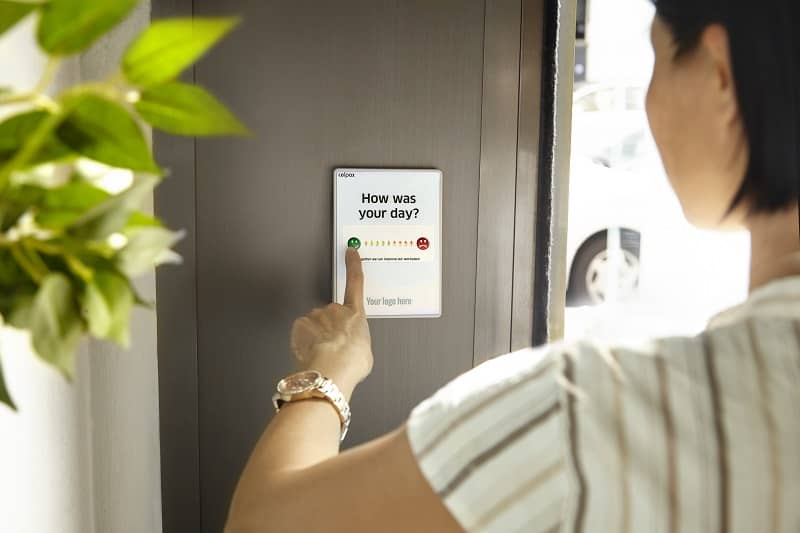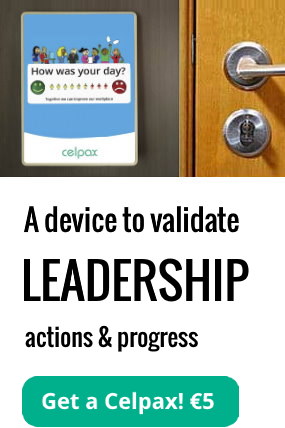Employee Compensation: So your employees are getting paid, right? Think again!
Employee Compensation
Employee Compensation: A story about hiking, naming a company and shopping with Grandma… and what it all has to do with employee compensation.
Grocery shopping with grandma
I have a lot of memories of my grandma. As a kid with 4 sisters and brothers, I used to spend a lot of time with her.
But none of those memories are as peculiar as when we went shopping.
We used to visit small stands that would pop up every weekend in the main plaza, and shopping was, above all, a social activity.
Grandma would engage in conversation while she browsed around and showed interest in some products, sometimes there would be a bit of bargaining or “package dealing”, but what I really found peculiar was when it was time to pay.

Grandma would always hand the cash with a gentle smile while asking: “Entonces, quedamos en paz?” (literally translated to “So, are we at peace?”).
It wasn’t until she felt the shopkeeper was also happy, by returning a smile, that she would let go of the cash.
Maybe I didn’t look for it hard enough, but I never saw that behavior anywhere else.
Hiking
As a Geologist, my dad used to do a lot of “field work”.
He used to start new projects just by walking around and getting a general feeling about the area to research.
I always saw this as a half work, half pleasure thing.
On many occasions, this would happen at the weekend, and I would sometimes go with him.
I remember we were looking at a river once and he looked at me with a mysterious smile asking: “Do you know which river this is?”
I replied: “No idea”. “It’s called “Rio Guadix”, he noted, and asked again: “Do you know what that means?”. “Nope”, I replied.

“When the Phoenicians came here” — he explained— “and saw the river they called it ‘ix’ (iks) which, not surprisingly, means ‘river’ in their language. Hundreds of years later the Arabs arrived and heard the locals calling the river ‘ix’, so they thought that was its name and called the river Guad-ix from Arabic wādi that also means ‘river’. And hundreds of years later we arrived, and following the same process we called this river: ‘Rio Guadix’, which in fact means: River, River, River.“
I found it hilarious.
I found it equally amazing how a language can tell your history, and how we use words without actually knowing what they mean.
Since then, I started paying interest to where words come from.
And with the internet full of Etymology Dictionaries, it’s easier than ever.
Naming a Startup
As an entrepreneur, I was facing the challenge to name a new company once more.
It was something that I found very, very hard.
The purpose of our venture was clear from day one: “Engage the global workforce”.
We wanted to use our technology skills to come up with easy tools that could help organisations around the world to engage with their people.
But around this time, we were only brainstorming potential “solutions”.

We considered 3 approaches to come up with a name:
— Use a common word that everybody knows, and make it yours for this field. It’s like “Apple” the brand that makes “computers”.
— Use a very, very easy way to describe what you do, like: “business-trips.com”, kind of…
— Create your own term. Something like “Yahoo” or “Google” where those words did not exist before, at least in that form.
All approaches had their pros and cons:
I didn’t really like the first one, because I did it in a previous venture, and you easily end-up with lots of trademark disputes, it’s very difficult to appear high up in search engine results, etc.
I never felt attracted to the second option. Besides we did not have a solution or product yet, so it was very difficult to think of something that would actually work right then.
So, I decided, this time, to try option three.
So I made a list of all words related to “Engaging the global workforce” and brainstormed new words around it.
Some webs recommended mixing two terms, adding a prefix or suffix, etc to come up with a new word.
Above all, I wanted to be sure I knew the real meaning of the words, so I looked them up in the Etymology dictionary, and then this happened:
Pay (v): from Latin pacare, literally “make peaceful,” from pax (genitive pacis) “peace”.
My memory of Grandma shopping hit me
Wow! Suddenly my memory of Grandma shopping hit me!! The actual meaning of the verb “Pay” is to “bring peace into an agreement”.
It turns out, Gramma was not peculiar in the way she handed cash, but she was literally “paying” in an authentic way.
I found it very inspiring for our new venture: We should try to bring back the original meaning of the word “Pay”, we should maximise it!

We should help organisations and employees alike maximise their “agreement” in a way that they feel most satisfied with each other.
And so the brand “Celpax” was born.
With the “Cel” part meaning kind of top/above.
Employee Compensation
Managers no longer hand money or checks to employees, but if we did, and we asked them at the same time: Is everything OK?
What would we get?
So, it is only when you get an affirmative answer that you have actually “paid” your employees, everything else is just handling money.

So what do we do at Celpax? We measure employee morale in real-time via a device!
Get 1 Celpax to start improving at work, continuously, together with your employees.
 Aloha! I’m Rafael. I love innovation, the outdoors and to challenge the status quo of things. I’ve been building commercial software since I was a teenager and I’m one of the Swedish based arms at Celpax. Come say hi!
Aloha! I’m Rafael. I love innovation, the outdoors and to challenge the status quo of things. I’ve been building commercial software since I was a teenager and I’m one of the Swedish based arms at Celpax. Come say hi!
Similar interests
- Non Gamstop Casinos UK
- Slot Sites UK
- New Betting Sites UK
- Casinos Not On Gamstop
- Gambling Sites Not On Gamstop
- Casino Non Aams Sicuri
- UK Online Casinos Not On Gamstop
- Gambling Sites Not On Gamstop
- Sites Not On Gamstop
- Sites Not On Gamstop
- Non Gamstop Casino Sites UK
- Best Online Casino Canada
- UK Casino Not On Gamstop
- Non Gamstop Casinos
- Casinos Not On Gamstop
- Siti Scommesse
- Top Casino Sites UK
- Slots Not On Gamstop
- Casino En Ligne Meilleur Site
- Casinos Not On Gamstop
- Betting Sites UK
- Slots Not On Gamstop
- UK Casino Not On Gamstop
- Migliori Casino Online Non Aams
- Non Gamstop Casino UK
- Lista Casino Online Non Aams
- Meilleur Casino En Ligne
- Best Crypto Casino
- Casino En Ligne
- Casino Online
- Casino En Ligne France
- Paris Sportif Ufc
- Casino Jeux En Ligne
- Meilleur Casino En Ligne
- Bonus Free Spin Senza Deposito
- Casinò Non Aams Con Free Spin Senza Deposito
- Nuovi Casino Non Aams
- Migliori Casino Online
- Crypto Casino
- Casino Non Aams



